Conscious expectation and unconscious conditioning in analgesic, motor, and hormonal placebo/nocebo responses
- PMID: 12764120
- PMCID: PMC6741114
- DOI: 10.1523/JNEUROSCI.23-10-04315.2003
Conscious expectation and unconscious conditioning in analgesic, motor, and hormonal placebo/nocebo responses
Abstract
The placebo and nocebo effect is believed to be mediated by both cognitive and conditioning mechanisms, although little is known about their role in different circumstances. In this study, we first analyzed the effects of opposing verbal suggestions on experimental ischemic arm pain in healthy volunteers and on motor performance in Parkinsonian patients and found that verbally induced expectations of analgesia/hyperalgesia and motor improvement/worsening antagonized completely the effects of a conditioning procedure. We also measured the effects of opposing verbal suggestions on hormonal secretion and found that verbally induced expectations of increase/decrease of growth hormone (GH) and cortisol did not have any effect on the secretion of these hormones. However, if a preconditioning was performed with sumatriptan, a 5-HT(1B/1D) agonist that stimulates GH and inhibits cortisol secretion, a significant increase of GH and decrease of cortisol plasma concentrations were found after placebo administration, although opposite verbal suggestions were given. These findings indicate that verbally induced expectations have no effect on hormonal secretion, whereas they affect pain and motor performance. This suggests that placebo responses are mediated by conditioning when unconscious physiological functions such as hormonal secretion are involved, whereas they are mediated by expectation when conscious physiological processes such as pain and motor performance come into play, even though a conditioning procedure is performed.
Figures
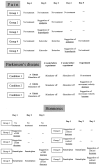
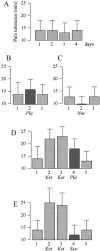

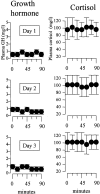
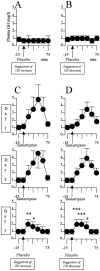
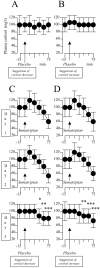

References
-
- Ader R ( 1985) Conditioned immunopharmacological effects in animals: implications for a conditioning model of pharmacotherapy. In: Placebo: theory, research, and mechanisms (White L, Tursky B, Schwartz GE, eds), pp 306–323. New York: Guilford.
-
- Ader R ( 1997) The role of conditioning in pharmacotherapy. In: The placebo effect: an interdisciplinary exploration (Harrington A, ed), pp 138–165. Cambridge, MA: Cambridge UP.
-
- Amanzio M, Pollo A, Maggi G, Benedetti F ( 2001) Response variability to analgesics: a role for non-specific activation of endogenous opioids. Pain 90: 205–215. - PubMed
-
- Benazzouz A, Hallett M ( 2000) Mechanism of action of deep brain stimulation. Neurology 55: S13–16. - PubMed
Publication types
MeSH terms
Substances
LinkOut - more resources
Full Text Sources
Other Literature Sources
Medical
